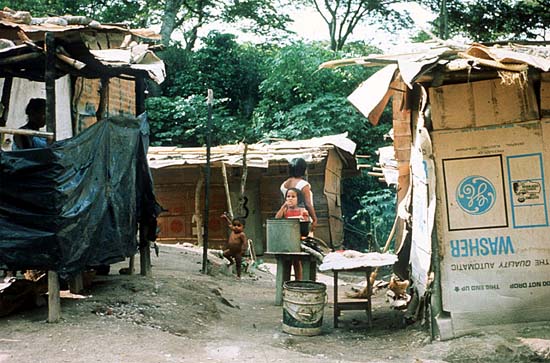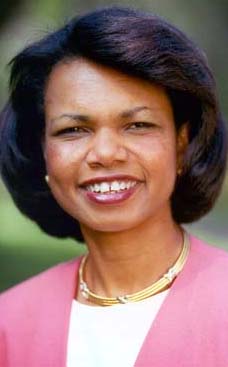
Though relatively poor, Africa is not helplessly dependent upon the West, contrary to the general story we hear. Africa’s education system props up Britain’s NHS with a hidden subsidy when trained nurses and doctors come here to work. Britain benefits from increasingly cheap African commodities because of markets skewed through tariffs and subsidies to ensure that little value can be added to raw products at source in Africa. Capital flight, mainly from corrupt African officials recycling Western aid, finds its way into Western banks creating a net outflow of resources from Africa. If anything, it is the West that should wean itself off African aid.
Chukwu-Emeka Chikezie says Development is a moral crusade led by charities who know nothing about job creation
Does aid work? Yes - for Britain
Chukwu-Emeka Chikezie
Development is a moral crusade led by charities who know nothing about job creation
Photo: Unesco
IF WE HAVE to go on about aid to Africa, at least let’s hear the real story of who Africa’s biggest aid donors and investors actually are — Africans who send money, called “remittances”, home to relatives and communities — and how much is involved — $200 billion.
This estimated figure comes from a 2003 World Bank study, which points out that these remittance flows exceed both foreign direct investment and official aid. Even this staggering figure could be dwarfed by domestic remittances from internal migration. Africans are their own biggest aid donors.
*
Click here to find out more!
Though relatively poor, Africa is not helplessly dependent upon the West, contrary to the general story we hear. Africa’s education system props up Britain’s NHS with a hidden subsidy when trained nurses and doctors come here to work. Britain benefits from increasingly cheap African commodities because of markets skewed through tariffs and subsidies to ensure that little value can be added to raw products at source in Africa. Capital flight, mainly from corrupt African officials recycling Western aid, finds its way into Western banks creating a net outflow of resources from Africa. If anything, it is the West that should wean itself off African aid.
Still, does the aid we do give to Africa work? Well, of course it works. For Britain, that is. For a start, Britain gains influence over all those African governments that receive our aid. Rather than tax their own citizens and in turn be accountable to them, African governments prefer aid and accountability to donors. It is only right, therefore, that we Brits tell them what to do. Britain has now suspended an increase in aid to Ethiopia after election-related violence. This comes after our suspension of aid to Uganda. Addis Ababa and Kampala will now jump through hoops to please us.
Aid also buys Britain influence on the global plane, such as at the United Nations or the World Bank. At home, too, aid helps us to feel good about ourselves as we all focus on fixing Africa, forgetting anxieties over Iraq, foundation hospitals, identity cards, etc.
This isn’t cynicism. It’s one side of the aid coin, the other being an end to poverty and injustice in Africa. And that’s where the equation fails miserably. As Nicky Oppenheimer, chairman of De Beers, the diamond mining group, said recently: “Over 50 years sub-Saharan Africa has received more than $1 trillion worth of aid and . . . many African countries are today poorer than they were 50 years ago.” Quibble with his figures if you will, but aid simply has not worked for Africa.
Ah, but now things are different. Aid is tied to good governance. Well, guess what? Aid does not buy good governance. Meles Zenawi, the Ethiopian Prime Minister, served on Tony Blair’s Commission for Africa (CfA). After recent elections in Ethiopia 35 unarmed protesters were killed by security forces and thousands were arrested. Zenawi announced a one-month ban on demonstrations (now extended for another) and assumed direct control of the police force. An embarrassed Hilary Benn had to suspend aid. But that won’t wake the dead.
Just as the road to hell is paved with good intentions, so too does much well-intended aid — and all that comes with it — do real harm or little good. For example, the CfA commissioners have produced a useful report, admittedly more of an encyclopaedia of African development than a focused strategy. The real value of such a commission, however, is as much in the process of bringing issues and challenges to the surface, building consensus around workable solutions and mobilising the political will to implement them. Where do the institutional memory and capacity for such self-determination lie? Not in Africa where it is needed most, but here in Britain. A tragic, wasted opportunity.
The development industry has become a self-perpetuating, self-justifying beast of enormous complexity. The jargon, theories and constantly shifting fads boggle the mind. Yet the Pulse of Africa survey conducted by the BBC in 2004 produced some clear messages. Two out of three Africans identified their priority as making money and 20 per cent of respondents mentioned getting a well-paid job. Other significant mentions included getting training/education and starting a business. Very little development activity tackles this head-on.
Instead, development has become a moral crusade championed by charities who know nothing about putting people in work. Indeed, when the very companies that could create jobs talk to city investors about Africa, they lose credibility because of Africa’s image — an image tainted not just by corrupt dictators but also by a self-serving aid industry that exploits Africa’s plight to generate pity and cash from donors in the West.
An alternative approach is a mature relationship between Africa and the West. Here are four practical suggestions. First, get real about good governance — either disown Zenawi for the recent atrocities in Ethiopia or accept that aid cannot effect deep change in Africa. Second, use “aid” to buy African produce currently frozen out of European markets by those ridiculous subsidies. Third, build African institutions’ capacity. And finally, listen to Africans here in Britain who will gather tomorrow at the annual African Diaspora & Development Day to plan how to use their share of that $200 billion to create enterprises, jobs and lasting wealth in Africa.
The author works for AFFORD African Foundation for Development: www.afford-uk.org














